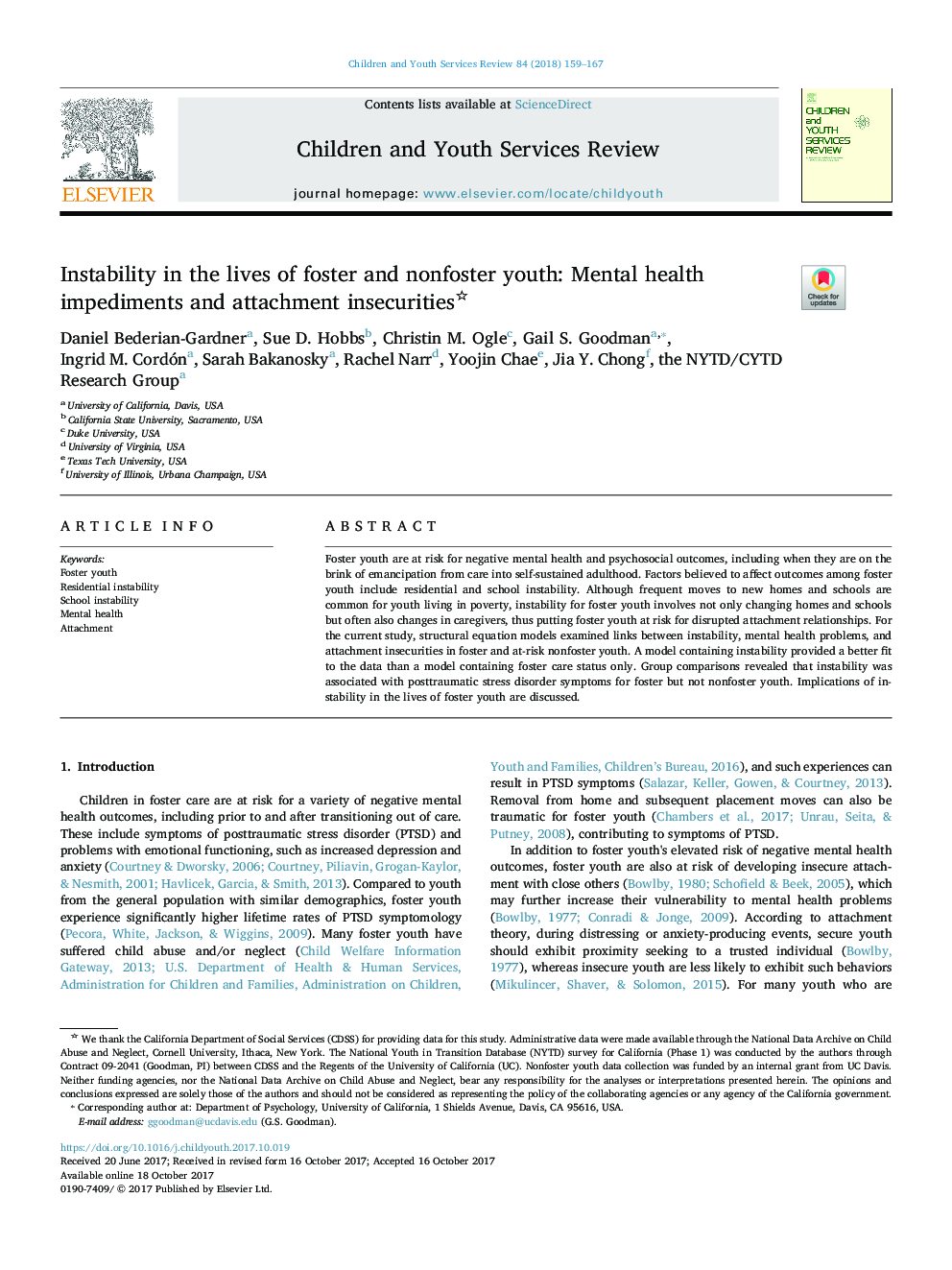| Article ID | Journal | Published Year | Pages | File Type |
|---|---|---|---|---|
| 6833498 | Children and Youth Services Review | 2018 | 9 Pages |
Abstract
Foster youth are at risk for negative mental health and psychosocial outcomes, including when they are on the brink of emancipation from care into self-sustained adulthood. Factors believed to affect outcomes among foster youth include residential and school instability. Although frequent moves to new homes and schools are common for youth living in poverty, instability for foster youth involves not only changing homes and schools but often also changes in caregivers, thus putting foster youth at risk for disrupted attachment relationships. For the current study, structural equation models examined links between instability, mental health problems, and attachment insecurities in foster and at-risk nonfoster youth. A model containing instability provided a better fit to the data than a model containing foster care status only. Group comparisons revealed that instability was associated with posttraumatic stress disorder symptoms for foster but not nonfoster youth. Implications of instability in the lives of foster youth are discussed.
Related Topics
Health Sciences
Medicine and Dentistry
Perinatology, Pediatrics and Child Health
Authors
Daniel Bederian-Gardner, Sue D. Hobbs, Christin M. Ogle, Gail S. Goodman, Ingrid M. Cordón, Sarah Bakanosky, Rachel Narr, Yoojin Chae, Jia Y. Chong, the NYTD/CYTD Research Group the NYTD/CYTD Research Group,
